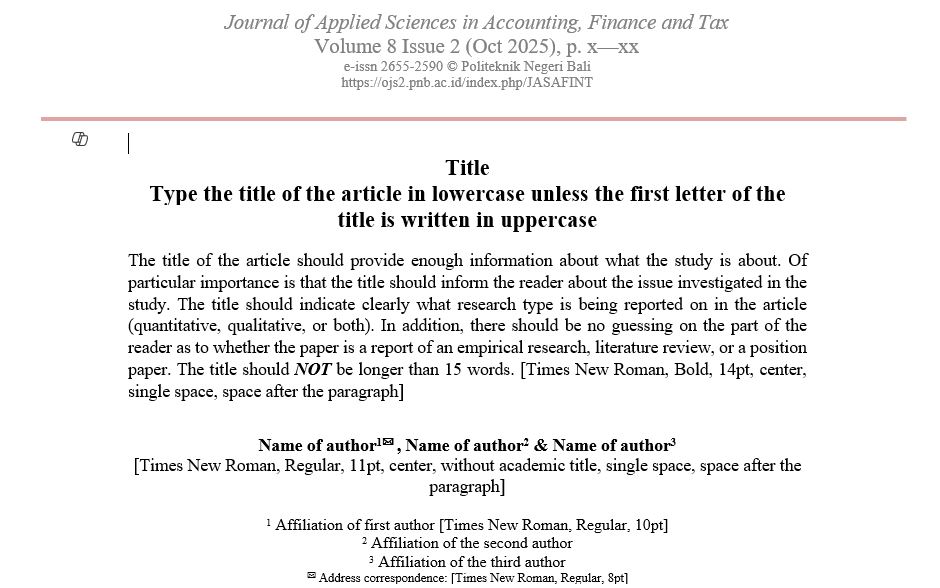Implementation of green accounting in Kaamala Resort Ubud
DOI:
https://doi.org/10.31940/jasafint.v8i1.21-25Keywords:
CSR, green accounting, implementationAbstract
Green accounting is pivotal for companies addressing environmental challenges through effective financial management. Despite its recognized benefits, many organizations hesitate to adopt environmental accounting due to concerns about profitability. This research aims to analyze the implementation of environmental accounting reporting at Kaamala Resort Ubud, located in Bali. Employing descriptive qualitative methods, the study utilizes primary data from interviews with the chief accounting manager and secondary data from the resort's 2023 profit and loss report and general ledger. Data collection methods included direct observation, documentation studies, and in-depth interviews. The findings reveal that while the resort's environmental cost accounting practices align with PSAK (Indonesian Financial Accounting Standards), the recording is overly simplistic and lacks transparency, as it merges with other cost accounts. Additionally, specific reporting based on the Hansen and Mowen model has not been implemented. The study proposes a tailored model design for environmental cost accounting, highlighting the importance of effective practices for cost analysis and informed decision-making, ultimately leading to cost savings.







